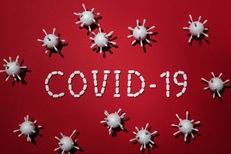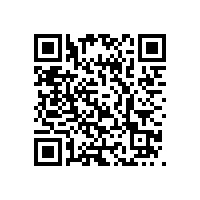Charity_Survey

We are evaluating the impact of COVID-19 on groups who are supporting people with rare diseases during the COVID-19 pandemic. There will be a £50 Amazon voucher provided to a single entry drawn at random from eligible participants.
Thank you to everyone who contributed to this project. The Amazon voucher was awarded to a Cystic Fibrosis charity.
The paper is freely available Evaluating the impact of COVID-19 on rare disease support groups | BMC Research Notes | Full Text (biomedcentral.com)
McMullan, J., Crowe, A.L., Bailie, C. et al. Evaluating the impact of COVID-19 on rare disease support groups. BMC Res Notes 14, 168 (2021). https://doi.org/10.1186/s13104-021-05579-8
There is also more information on our updated news feed

We are keen to understand how groups that are supporting people with rare diseases have been affected by the COVID-19 pandemic. Through this project we hope to identify strategies that are working well for these groups as well as common issues to explore where the development of further resources would be most effective during this COVID-19 pandemic.
This short survey is for individual or collaborative groups (including charities, voluntary, and community groups) to help evaluate the impact of COVID-19 on groups who are supporting people with rare diseases during the pandemic. The role of the charity / volunteer sector is recognised as being critically important in our society, particularly in helping minimise challenges at this difficult time.
https://www.smartsurvey.co.uk/s/COVID19_RD_Groups/

We appreciate and welcome your input to this evaluation. If you wish to provide further details and / or have any questions about this survey, please contact raredisease@qub.ac.uk using ‘COVID-19 Survey groups' in the subject line.
If you wish further information, our information leaflet and associated privacy document is available here:
Charity COVID Information Leaflet
This leaflet provides important information you will need to think about when deciding whether to take part in this project. The information contained in this leaflet may be made available in other formats – please just ask. If you want more detailed information about something, you can ask any at any time.
What do I have to do?
At this time, we would like you to consider completing an online survey to learn more about the impact COVID19 has had on your group. We are also interested in understanding more about how your group can be best supported in the future. The survey will take approximately 15 minutes to complete in full – we would appreciate partial answers if you only have time to complete a small component of the survey. The completed surveys will be stored in a safe environment that complies with national data security standards and will only be available to the three named researchers involved in the initial analysis. All future work will use summary data, which is anonymised.
Please have your voice heard!
https://www.smartsurvey.co.uk/s/COVID19_RD_Groups/
How will the results be used?
Results from this project will be collated anonymously and used to help improve the accessibility of resources and addressing the needs of individuals affected by rare disease(s) in Northern Ireland.
We aim to:
- To perform an online survey with individual or collaborative rare disease groups.
- To explore the challenges rare disease groups have faced during the COVID-19 pandemic.
- To discover the impact COVID-19 has had on the services these groups are able to provide.
- To identify the long-term implications COVID-19 will have on such groups.
- To discover where resources need developed further to help groups support those with a rare disease at this time.
What are the advantages? By taking part in this study you will be helping to identify were resources should be developed to most effectively support rare disease charity groups. We recognise the exceptional ongoing work from existing groups and by agreeing to take part in this study we hope to build resources further. There will be a £50 Amazon voucher provided to a single entry drawn at random from individuals who wish to be entered into the draw by providing their email address in the last question.
This study was reviewed and approved by the Queen’s University of Belfast, MHLS Faculty Research Ethics Committee (MHLS 20_72).
Ashleen Crowe was awarded a PhD studentship by the Department for the Economy Northern Ireland. JM is supported by funding from Belfast Health and Social Care Trust as part of the NI Genomic Medicine Centre project, which is funded by the Department of Health NI and the Medical Research Council.


